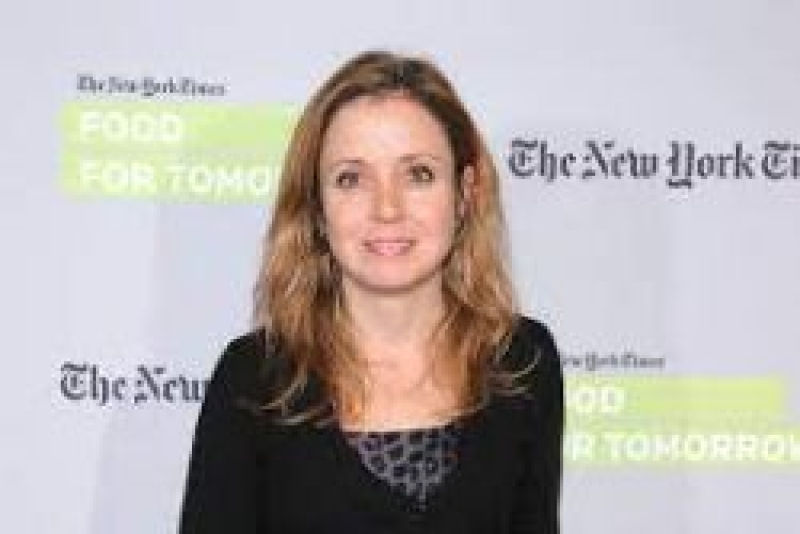- EU Deploys 56 Long-Term Observers Across Bangladesh |
- Appeals over nomination papers:18 more regain candidacies back |
- More than 100 dead in torrential rains and floods across southern Africa |
- Islami Andolan to Contest Election Alone in 13th Poll |
- 3 killed in Uttara building fire; 13 rescued |
You Can’t Have The Practices Without The People

Danielle Nierenberg
Danielle Nierenberg
People often ask A-dae Romero-Briones to “explain the Indigenous food movement.”
A-dae (who is Cochiti/Kiowa) is the Vice President of Policy & Research at the First Nations Development Institute and has worked extensively on protecting traditional foodways and highlighting the importance of Native representation in the food system. She’s one of my favorite people to talk with about her perspectives on Indigenous food sovereignty and community health.
“At some point, we’ve become disattached from our stories, just like we’ve become disattached from our foods,” she told me a few years ago at SXSW. “We’ve become these nutrient-counting, calorie-counting machines. … We have to recognize that we are all living, breathing stories.”
And our individual stories intersect with other people’s stories, our community stories, the stories of our environments and everything within them, she says.
“When we look at hundreds of Indigenous models, we find their foods are the accumulation of direct connections with the land, with each other, and with ancestry,” she says.
However, as she told me at SXSW, calling Indigenous food a movement “agitates me,” she said.
“Because a movement assumes there’s a beginning and an end. We have always been here, (and) we will be here after when all these conversations end.”
She’s right. When we talk about Indigenous foodways, about traditional knowledge systems, about Native keepers of the land, we’re not talking about something that only existed in the past.
Indigenous food systems bridge the past, the present, and the future. When it comes to the food systems of the future, Indigenous food sovereignty and traditional knowledge systems can—and must!—be central. But as A-dae points out so well, “It’s not about Indigenous practices, it’s about Indigenous people. You can’t have the practices without the people.”
As we know, it matters not only who has a seat at the table, but who is actively contributing to the conversation.
And this is especially true in the tech sector, says Riana Lynn, the Founder of Journey Foods, which uses AI and other tools to help companies build more sustainable, nourishing, cost-effective and socially just supply chains.
“We have to imagine that, in the next five to 10 years, there’s going to be smarter solutions than ever—so we have to be creative about how we think about it and who is leading those efforts,” she said at Climate Week NYC last year.
That’s a goal of Journey Labs, an initiative within the company that partners with schools, governments, healthcare providers, and other institutions to focus on data gathering and collaborative relationships that interweave research, policy, entrepreneurship, and better food access. That sustainability data is huge, of course, but it’s not just a numbers game—the future of food is about people.
“Supporting one another is so valuable to make sure we’re making change within our communities, and for the future of creativity,” Riana told me on an episode of the Food Talk podcast.
As it is every year, this autumn is a busy, vital season for global food systems, from Climate Week NYC to World Food Day to COP30, the United Nations’ landmark anniversary climate change conference in Brazil. In a couple weeks, as the UN General Assembly meets, we’ll gather for Climate Week NYC to discuss large-scale, creative climate action with hundreds of luminary speakers including both A-dae Romero-Briones and Riana Lynn. (CLICK HERE for more info on tuning in via livestream!)
At large-scale conferences and high-level events, I’m there representing Food Tankers around the world! So please keep me in the loop—email me personally at danielle@foodtank.com, and let’s talk about what questions are on your mind, what actions you’re hoping to see from food system leaders, and how we can continue pushing for accountability and sustainability.
And finally, whether we’re thinking about food systems transformation globally or locally in our own neighborhoods and communities, I’m hoping we can ground ourselves with A-dae’s reminder that “you can’t have the practices without the people.”
(Danielle Nierenberg is the President of Food Tank and cab be contacted at danielle@foodtank.com)

